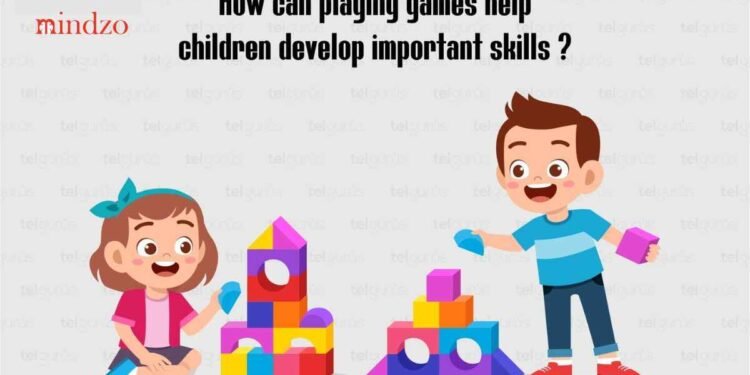1. The Role of Toys in Child Development
How do Toys Support Essential Development Skills? Toys are not just objects of entertainment; they play a crucial role in shaping a child’s mental, physical, and emotional growth. By engaging in different types of play, children develop necessary life skills that prepare them for the future.
2. Cognitive Skills: Learning Through Play
Toys like puzzles, memory games, and building blocks enhance problem-solving abilities and critical thinking. They help children recognize patterns, develop concentration, and boost logical reasoning.
3. Motor Skills: Developing Coordination and Strength
From stacking cups to riding bicycles, toys help in refining both fine and gross motor skills. Activities like drawing, playing with dough, or using toy tools enhance hand-eye coordination and dexterity.
4. Social Skills: Learning to Interact with Others
Board games, dolls, and pretend-play sets encourage teamwork, cooperation, and communication. Through role-playing, children learn to share, take turns, and develop empathy.
5. Emotional Growth: Expressing Feelings Through Toys
Toys provide an outlet for children to express their emotions. Stuffed animals, dolls, or storytelling toys help kids process their feelings and build emotional resilience.
6. Creativity and Imagination: Sparking Innovation
Creative toys like art supplies, LEGO, and pretend-play sets ignite a child’s imagination. Open-ended play allows kids to think outside the box and develop unique problem-solving approaches.
7. Language and Communication Skills: Enhancing Expression
Talking dolls, storybooks, and word games improve vocabulary and communication. Toys that encourage conversation help children articulate their thoughts clearly.
8. STEM Learning: Encouraging Problem-Solving Abilities
Science kits, coding toys, and construction sets introduce kids to STEM (Science, Technology, Engineering, and Mathematics) concepts in a fun and engaging way.
9. Sensory Play: Stimulating the Senses
Toys like sand, water tables, musical instruments, and textured objects stimulate the senses, aiding in cognitive and physical development.
10. The Importance of Age-Appropriate Toys
Choosing age-appropriate toys ensures that children are challenged without frustration. Labels on toys guide parents to select items that align with their child’s developmental stage.
11. Toys and Independence: Fostering Self-Reliance
Independent play encourages children to develop confidence and decision-making skills. Simple toys like stacking rings or sorting games help kids learn at their own pace.
12. How Parents Can Choose the Right Toys?
Parents should look for toys that align with their child’s interests and developmental needs. Safe, engaging, and educational toys offer the most benefits.
13. The Role of Technology in Modern Toys
Smart toys and interactive learning gadgets are changing the way children play. While technology can be beneficial, balance is key to avoiding excessive screen time.
14. Are Expensive Toys Always Better?
A hefty price tag doesn’t always mean better development. Simple, classic toys like building blocks and dolls often provide more learning opportunities than high-tech gadgets.
15. Conclusion: The Lasting Impact of Toys on Development
How do Toys Support Essential Development Skills? Toys play an essential role in shaping a child’s skills, confidence, and creativity. Parents can support their child’s overall growth by choosing the right toys while making learning fun and engaging.
FAQs
1. How do toys help in brain development? Toys like puzzles, shape sorters, and memory games enhance cognitive functions by encouraging problem-solving, memory retention, and critical thinking.
2. What are the best toys for improving motor skills? Toys such as stacking rings, riding scooters, and arts and crafts kits help develop both fine and gross motor skills.
3. Can toys help children develop emotional intelligence? Yes! Role-playing toys, dolls, and storytelling activities help children understand and express emotions, fostering empathy and self-awareness.
4. Are electronic toys better for learning? While some electronic toys provide educational benefits, hands-on, open-ended play with traditional toys often fosters deeper learning and creativity.
5. How can parents encourage learning through play? Parents can engage in interactive play, provide a variety of toys, and create an environment that fosters curiosity, imagination, and problem-solving.




















